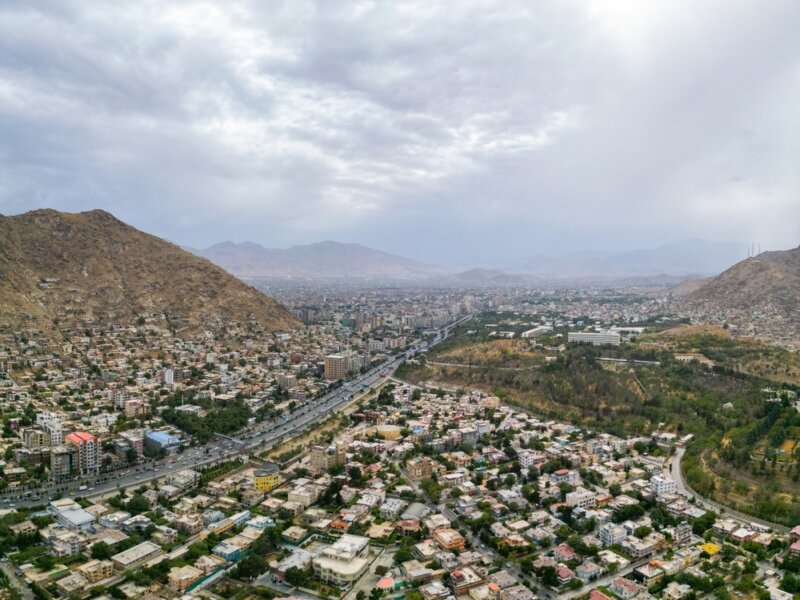Cambio di vertice nell’esercito pakistano
Cosa può rappresentare la decisione di assegnare al generale Aim Munir l'incarico, a partire dal 29 novembre, di nuovo Capo dello Stato Maggiore dell'esercito pakistano? Il punto di vista di Guido Bolaffi

Nella complicata situazione politica del Pakistan cosa significa la decisione di assegnare al generale Aim Munir l’incarico, a partire dal 29 novembre, di nuovo Capo dello Stato Maggiore dell’esercito? Quali le possibili conseguenze della sua scelta sulle relazioni, oggi particolarmente burrascose, con l’India?
Due interrogativi obbligati dopo il sì del Capo dello Stato Arif Alvi - ufficialmente confermato poche ore fa dal Ministro della Difesa Khawaja M. Asif - sul nome del prescelto dal Consiglio dei Ministri di Islamabad come sostituto del generalissimo Qamar Javed Bajwadi, per anni intoccabile Comandante in Capo delle forze armate pakistane.
Un avvicendamento lungamente atteso ma particolarmente travagliato. In primo luogo in ragione del fatto che, come segnalava il quotidiano Pakistan Today nel corsivo Process to pick a new army chief begins, “Only on rare occasions has the baton been passed to someone outside the top four most senior officers occurs in an army that, with just under a million personnel, was the sixth largest in the world”.
Ma soprattutto per la particolare delicatezza di una decisione su chi mettere a capo di una istituzione così influente nella vita politica del paese. Basta leggere quanto scriveva lo scorso 29 ottobre Shekhar Gupta nell’articolo edito da National Interest con il titolo Imran Khan has Pakistani army ducking & defending. Why it’s a historic moment for the subcontinent: “The army’s word used to be a command for any government of the day. It could hire, fire, jail, exile, or murder prime ministers. But now it fears defeat at the hands of politicians”.
Un quadro di seria, serissima difficoltà spiegata in dettaglio su Indian Express dall’ex Alto Commissario per il Pakistan Sharat Sabharwal. Che nell’articolo Pakistan’s new army chief Asim Munir and the challenges that await him raccontava che “After a period of suspense and intense speculation the Pakistan government has picked Lt. General Asim Munir to succeed General Quamar Javed Bajwa as the Chief of Army Staff [...] His appointment has not been without controversy [...] He had been shunted from the post of General Director (DG) of the Inter-Service Intelligence (ISI) within eight months in June 2019 by then Prime Minister Imran Khan, reportedly because of some disagreements and replaced by the latter’s favourite, Lt. Faiz Hammed. Imran Khan looked at Munir with suspicion which was compounded by the reports of Munir’s choice as Chief having been made by exiled ex Prime Minister Nawaz Sharif [...] The President Arif Alvi gave his approval after meeting with Imran Khan in Lahore [...] It is possible that the presidential approval was facilitated by some assurances of an even-handed attitude by the incoming Army Chief to Imran Khan”.
Le reazioni indiane sulla nomina di Asim Munir alla guida del potente esercito dello storico avversario pakistano sono unanimemente improntate ad una preoccupata cautela. Un atteggiamento di cui dà conto, come meglio non si poteva, l’editoriale di Indian Express di venerdì 25 novembre, che rammentando l’ambiguo ruolo avuto dall’ex capo dell’ISI Asim Munir in due dolorosi ed assai complicati episodi del mai sopito conflitto tra India e Pakistan ammoniva: “Munir headed the ISI when the Pulwama bombing took place, and subsequently, was the man behind the scenes in the release of the fighter pilot Abhinandan Varthaman. India has no option but to continue to keep its guard up”.
Per coloro che, come lo era il sottoscritto, non fossero al corrente degli accadimenti legati ai due eventi poc’anzi segnalati dal quotidiano di Delhi riteniamo possa essere utile disporre della loro versione fornita in inglese da Wikipedia:
Pulwama: National Highway was attacked by a vehicle-borne suicide bomber at Lethapora in Pulwama district of the erstwhile state of Jammu and Kashmir. The attack killed 40 Indian Central Reserve Police Force personnel as well as the perpetrator - Adil Ahmad Dar - who was a local Kashmiri youth from the Pulwama district. The responsibility for the attack was claimed by the Pakistan-based islamist terrorist group Jaish-e-Mohammed. India blamed neighbouring Pakistan for the attack, while the latter condemned the attack and denied having any connections to it. The attack dealt a severe blow to India-Pakistan relations, consequently resulting in the 2019 India-Pakistan military standoff.
Abhinandan Varthaman: is an Indian Air force fighter pilot who during the 2019 India-Pakistan standoff was involved in chasing away Pakistani jets that entered India [...] His plane was shot down inside Pakistan. Pakistan released videos and images showing Varthaman being rescued from a violent mob of villagers by its soldiers, receiving first aid and being questioned while blindfolded. Under mysterious developments in the background which involved communication between Indian Research & Analysis Wing and Pakistani Inter-Service Intelligence heads [...] Pakistan decided in February 2019 to release him.



